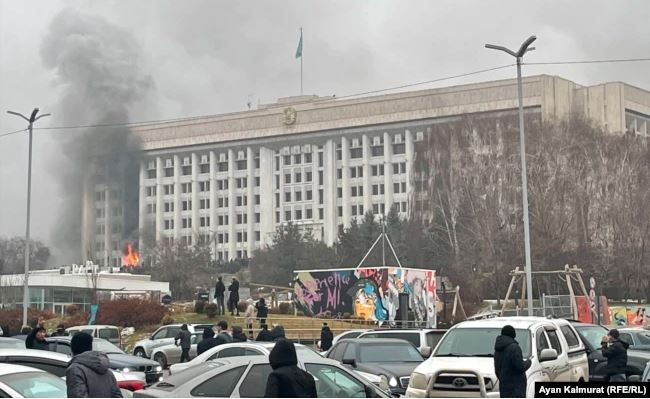The Collective Security Treaty Organization (CSTO), unofficially known as “Russian NATO,” has decided to intervene militarily in Kazakhstan at the request of the current Kazakh authorities.
Prime Minister of Armenia Nikol Pashinyan, who is the current head of the CSTO Collective Security Council, announced the decision on his Facebook page.
Pashinyan stressed that the President of Kazakhstan had applied to the organization, which comprises Belarus, Armenia, Kazakhstan, Kyrgyzstan, Russia, and Tajikistan, with a request for military assistance.
At the same time, the CSTO is convinced that the protests in Kazakhstan are caused by external forces, and therefore it is possible to view them as an attack that allows directing the armies of other members of the organization to quell the riots.
“In connection with President Tokayev’s address and the threat to national security and sovereignty of the Republic of Kazakhstan caused by external interference, the CSTO Collective Security Council decided to send a CSTO collective peacekeeping force to the Republic of Kazakhstan in accordance with Article 4 of the Collective Security Treaty,” Pashinyan’s statement says.
The number and composition of the “peacekeeping” military forces, as well as the tasks they will perform, have not been announced yet. It is noted that the foreign contingent is allowed to Kazakhstan “for a limited period of time in order to stabilize and normalize the situation.” However, Russia’s Interfax reports that according to official data, the total number of peacekeeping forces of the Collective Security Treaty Organization is about 3,600 people.
The Collective Security Treaty Organization is a military union of six states of the former Soviet Union. Its statutory documents contain rules on collective protection in the event of an attack on one of the Member States. However, so far this organization has refrained from such joint decisions.
Protests have been taking place in western Kazakhstan since January 2. Mass protests began in the city of Zhanaozen after a jump in liquefied gas prices, which fuel most cars in the region.
As protests spread to other cities, police stepped up security and detained activists and media representatives. On the morning of January 5, the Kazakh government was dismissed. On January 5, the President of Kazakhstan declared a state of emergency in the capital Nur Sultan.




